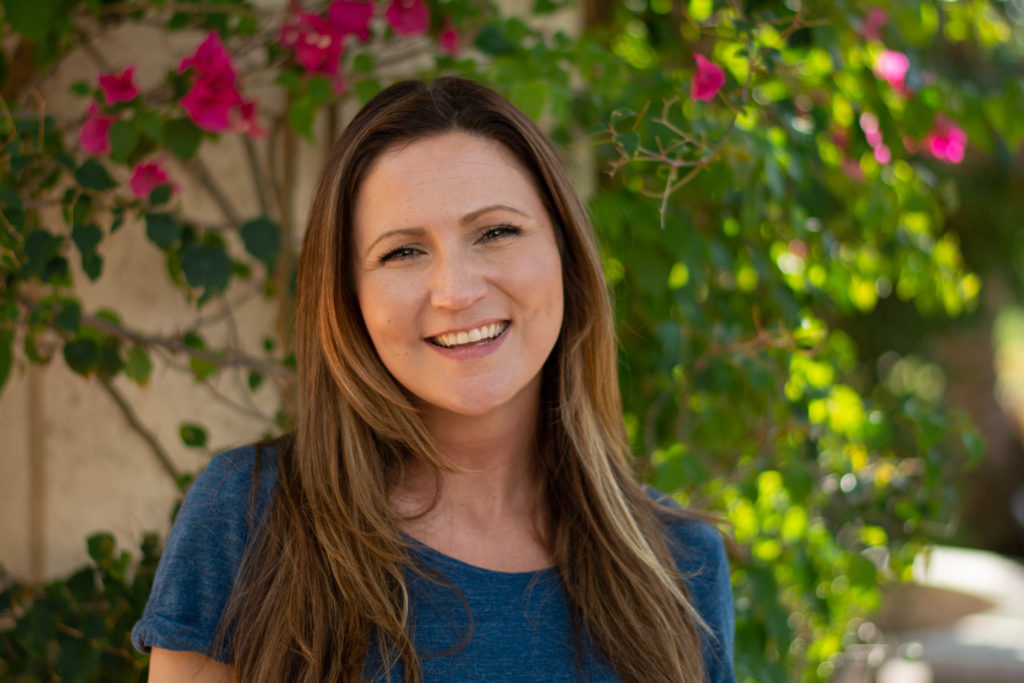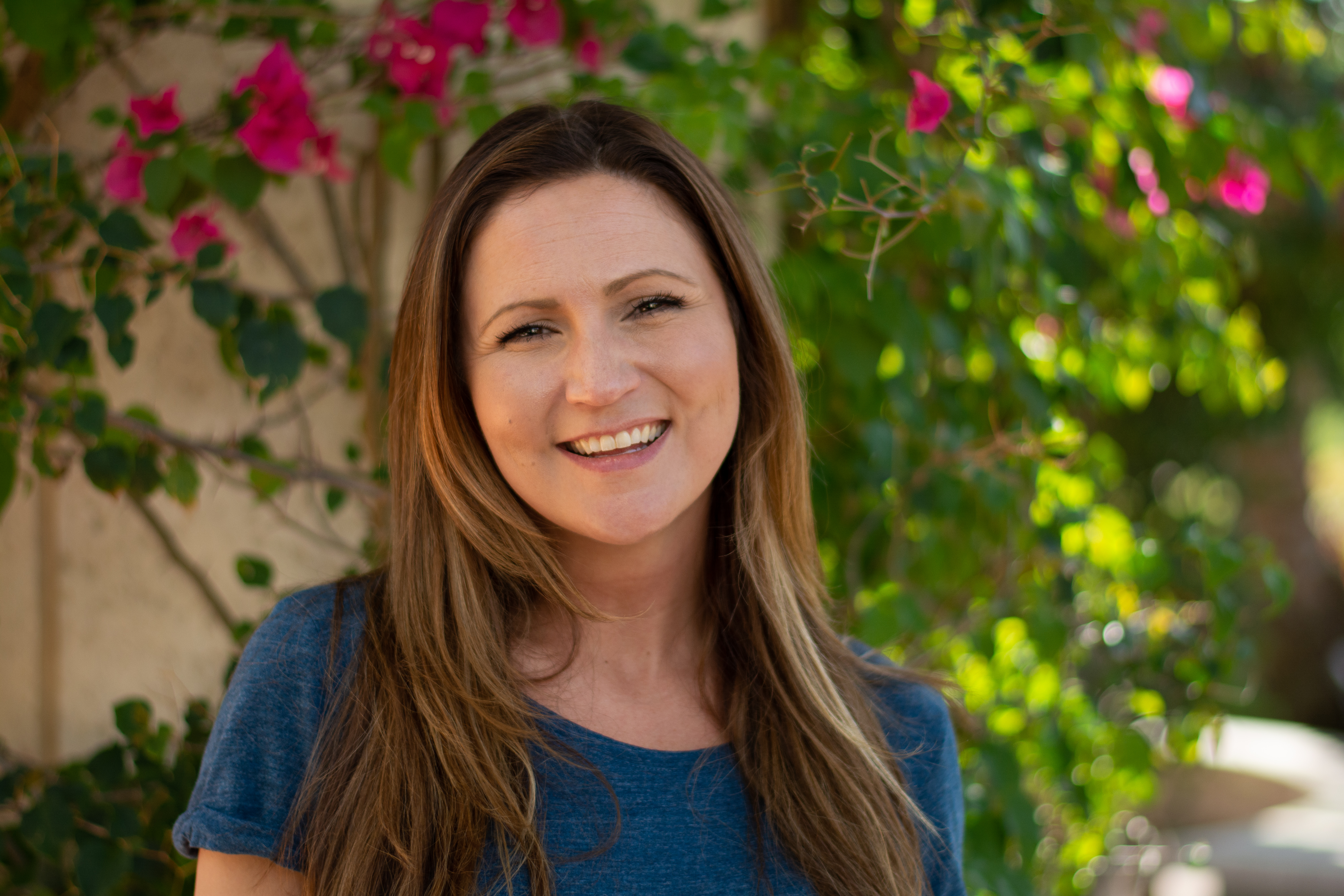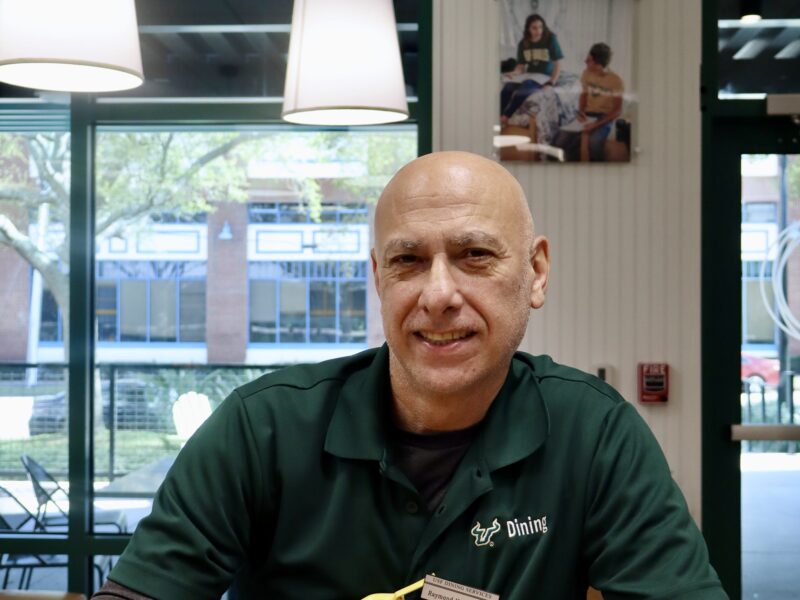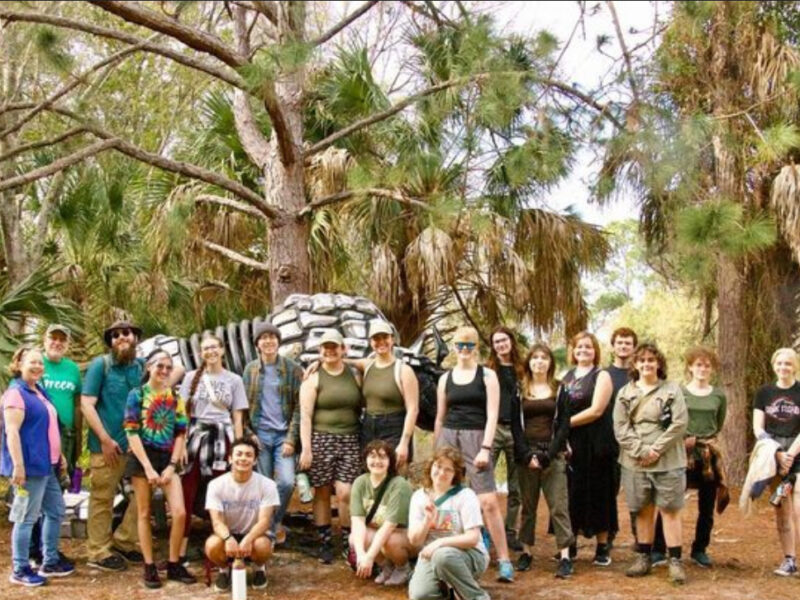
By Jonah Hinebaugh
Jaclyn Dell never planned on pursuing a degree.
Now, she’s graduating with a master’s degree and has been awarded a grant via the Fulbright U.S. Student Program to get her doctorate in psychology.
The program awards only 2,000 grants annually, which are chosen by a 12-member board appointed by the president of the United States. It’s intended for individually designed study and research projects or for English teaching assistant programs.
With the aid of a scholarship representative from USF Tampa, Dell spent a year working through the process of applying, including months of revising her application, figuring out who she would work with, and completing mock panel interviews.
She got the news that she had been accepted while she was working in her lab — a fitting scene.
In the fall, Dell will head to the University of Birmingham in the United Kingdom, where she’ll begin her research. She’ll continue there for three years, or until her doctorate is completed.
Her research will focus on mechanisms in the brain related to nicotine addiction – which she hopes to expand to alcohol.
She’ll be leaving behind her husband, Robert, and her three puppies: Sampson, Sophie and Franklin.
“It breaks my heart because (my dogs) are like my kids, so yeah, it’s going to be horrible, miserable, but they’ll still Skype me,” she said.
She echoed that for her husband, of course, but she said he’s a man of faith and backs her 100 percent.
“He’s awesome; he knows this is something that I’ve always wanted to do and what I’ve been called to do,” Dell said. “He believes I’ll be successful and was like, ‘I’m not going to stand in your way.’”
The two met at The Rock Community Church and Transformation Center in St. Petersburg, which serves as a place of worship and a recovery ministry offering faith-based programs geared toward people and families suffering from drug and alcohol addiction.
Dell, 34, works as the women’s treatment coordinator and teaches classes. Her husband is the director and senior pastor there.
Her experiences at The Rock, and losing her father to alcoholism, led her back to the classroom in 2010 to study drug addiction.
“I saw people struggling, and I thought, ‘If I get a degree in something, it will help people,’” Dell said. “My husband has the spiritual side covered, and I needed to do something in academia. I like to blend beliefs and science, which sounds a bit crazy.”
Two topics she knew she needed to learn about were drug addiction and the psychology surrounding it. Deciding which route to take gave her trouble, though.
She spent four years at St. Petersburg College trying to find the right academic avenue before coming to USF St. Petersburg.
After her first cognitive and physiological psychology courses, she set her sights on the neuroscience and underlying factors of addiction.
Dell said her father died when she was young, and his absence has always been an overarching theme in her life.
Her questions of why it happened led her to ask why he didn’t he do something different — or if it was even his choice.
“When someone loses their parent to alcoholism, it’s kind of ever-present,” she said. “The trickle down (of his death) to my siblings and other people and just the devastation (the) addiction leaves in its wake, it has always been there.
“The ability to do something about it and have an impact against it has always been something I want to right.”
Her research in St. Petersburg has secured her internships at both Brown and Yale universities.
Her experience at Brown helped prepare her for grad school while hanging out with fruit flies in the university’s neuroscience department, studying reward ethanol memory formation.
“Basically, we got flies drunk with vaporized alcohol, (it’s) the coolest thing,” Dell said. “They like alcohol, they like the smell of it, they get drunk and they get woozy – it’s crazy.”
Her time at Yale, funded by the National Institute of Drug Abuse, had her researching electroencephalography (EG) – measuring electrical activity in different parts of the brain and recording the activity as a visual trace – which mirrors what she studies at USF St. Petersburg.
“It was about substance-abusing mothers and their reaction to their babies or other babies because when you use drugs constantly, it compromises your reward circuits,” Dell said.
“Parenting is very rewarding, so the idea then is if substance-using mothers have kind of compromised these circuits, are they then compromising their ability to connect with their own babies?”
Dell wants to do more than just measure when something happens, like she does with EG, but also wants to know where it happens, which she can track with functional magnetic resonance imaging – combining temporal and spatial imaging is one of her goals while she studies in the United Kingdom.
“I’m setting my sights on that, because to be a part of that is so mind blowing to me,” Dell said. “The possibilities are endless.”
Access to the latest technology isn’t the only thing that puts a smile on her face when she thinks about her future there.
Birmingham also offers her access to scenes that have inspired some of her favorite pop culture icons, namely J.R.R. Tolkien and the Tolkien Trail.
The author is well-known for writing immersive fantasy novels, like the “Lord of the Rings” trilogy and “The Hobbit.” The city offers tours of the area that is said to have inspired his work – it’s a once in a lifetime opportunity, Dell said.
In addition, she plans to volunteer at a local charity to immerse herself in the culture.
From never planning to get a degree to toying around with the idea of a getting a postdoctoral position, Dell said she just kept trying. She said it didn’t make sense for her to get internships at Ivy League schools or have a full-ride to get her doctorate.
“I just keep trying things,” Dell said. “I think, a lot of times, people think, ‘What if I can’t do it?’ And, ‘What if it doesn’t work? What if I’m not smart enough?’
“But what if you are? You don’t know until you give it a shot, and I think that embodies me more than anything.”



